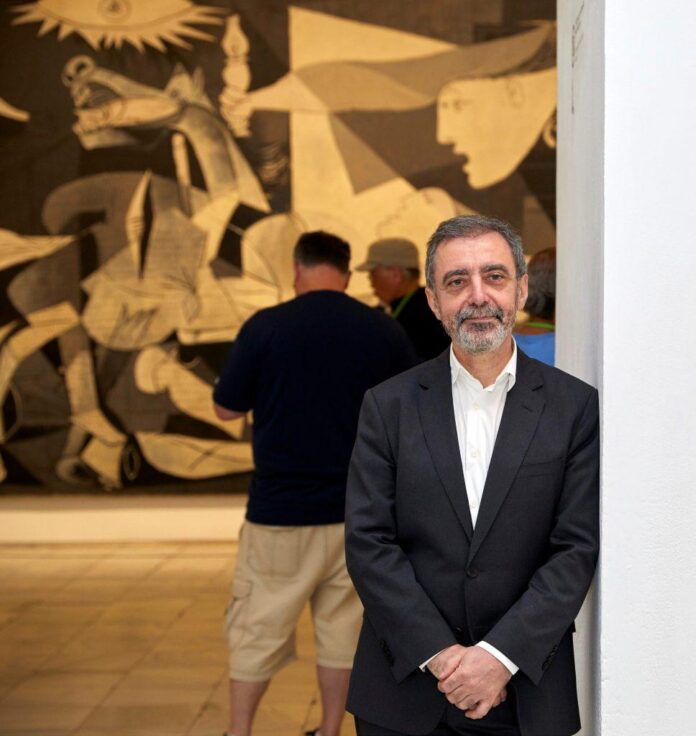Earlier this month, the director of Madrid’s Reina Sofia Museum, Manuel Borja-Villel, announced that he would not seek reelection and would instead abruptly step down from his role. After 15 years atop the institution, Borja-Villel’s last day came January 20.
The surprising move came amid increased criticism from right-wing groups, including a recent article from the far-right Spanish newspaper ABC, which accused the Reina Sofia of violating its own laws when it renewed Borja-Villel’s two most recent contracts.
Now, a group of artists, academics, and museum leaders have come out in support of the now-departed Borja-Villel, saying in an open letter that the attacks have come through a “hurried and manipulated ‘cultural war,’ surreptitiously unleashed by the outbreak of the extreme right in the Spanish political and media landscape.”
“These attacks are part of a defamatory campaign directed at the model the Museum represents, a campaign that began far before the process of electing a new director was initiated,” the missive, which was first published in e-flux, went on. “The aggression mainly originates from reactionary media outlets and their contexts—as well as from professionals in the art world—and follows a consistent pattern of disseminating flagrant and unfounded lies with the assurance that, despite any rebuttals, the damage will have already been done.”
Among the more than 1,700 signatories on the letter are many notable names, including artists Yto Barrada, Luis Camnitzer, and Martha Rosler; writers and teachers Hal Foster, David Joselit, and Rosalind Krauss; and museum directors Frances Morris of London’s Tate Modern, Mami Kataoka of Tokyo’s Mori Art Museum, and María Willis of Bogotá’s Museos de Arte Banco de la Republica.
Praising Borja-Villel’s “ethical commitment and honesty,” the letter concluded by saying, “it is paramount that we defend the institution’s stability and help to further develop the legacy that is being handed down by continuing to enrich our public heritage and take care of the Museum.”
Open letter in support of Manuel Borja-Villel.@museoreinasofia https://t.co/r9P2XbZvgC
— e-flux (@e_flux) January 31, 2023
Over the course of his 15-year tenure, Borja-Villel oversaw more than 200 exhibitions and led two reorganizations of the institution’s collection. He founded the Reina Sofia Museum Foundation, which has secured notable donations from collectors around the world, and the Friends of the Museo Nacional Centro de Arte Reina Sofia Foundation, a fundraising arm.
Annual visitor numbers consistently rose under Borja-Villel’s leadership, too, peaking in 2019 at four and a half million—which is three times the same figure from 15 years ago, according to the museum.
But critics of the director decried his prioritization of political, conceptual, and international art. Last month, published an article claiming that the museum broke its own internal rules when it extended Borja-Villel’s contract in 2013 and 2018, thus violating the Reina Sofia’s own rules, which stipulate that the museum’s leaders need to be appointed through competition.
Both Borja-Villel and the museum denied these accusations, noting that the two contracts were granted under the government of the People’s Party and were endorsed by the then-current ministers of culture.
Up next for Borja-Villel is the 35th São Paulo Biennial, which he is co-curating with Grada Kilomba, Diane Lima, and Hélio Menezes. The Reina Sofia’s deputy artistic director, Mabel Tapia, and deputy managing director, Julian Gonzalez Cid, will lead the museum on an interim basis while it conducts an international competition for its next head. A new candidate is expected to be announced as soon as this spring.

























